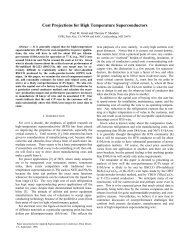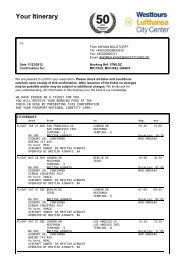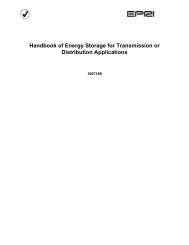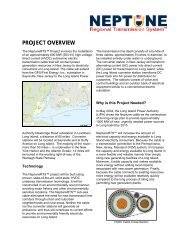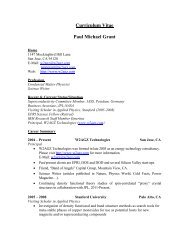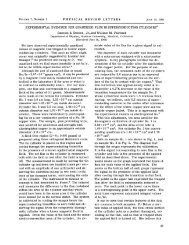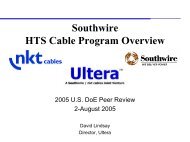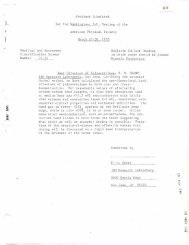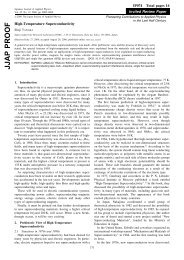National Electric Transmission Congestion Study - W2agz.com
National Electric Transmission Congestion Study - W2agz.com
National Electric Transmission Congestion Study - W2agz.com
Create successful ePaper yourself
Turn your PDF publications into a flip-book with our unique Google optimized e-Paper software.
model assumed dispatch on the basis of average<br />
losses.<br />
Concerning the obstacles to trade, the model used<br />
here assumes economically efficient transactions<br />
will occur everywhere in the Eastern Interconnection,<br />
including the Georgia-Florida border area.<br />
This assumption is typical of simulation models.<br />
Deviating from that assumption in an analytically<br />
justifiable way is not feasible without more detailed<br />
information and data about the obstacles in question,<br />
so that they can be accurately portrayed in the<br />
model. Average retail electricity rates in Florida<br />
were 24% higher in 2004 than those in Georgia and<br />
31% higher than those in Alabama; 22 this implies<br />
the existence of significant barriers to trade of some<br />
kind. The treatment of line losses will be considered<br />
in determining changes needed to improve future<br />
national, regional, and inter-regional congestion<br />
analyses. (See Chapter 7 for additional discussion.)<br />
Figure 3-7. Most Congested Paths in the Eastern Interconnection, 2008 Simulation<br />
Note: Louisiana is shown as having significant congestion, but this simulation is based on the Gulf Area system as it was<br />
prior to the 2005 hurricanes. <strong>Electric</strong>ity demand in the area is now significantly lower, and one would expect congestion to<br />
22 Energy Information Administration, State <strong>Electric</strong>ity Profiles 2004, June 2006.<br />
U.S. Department of Energy / <strong>National</strong> <strong>Electric</strong> <strong>Transmission</strong> <strong>Congestion</strong> <strong>Study</strong> / 2006 27



